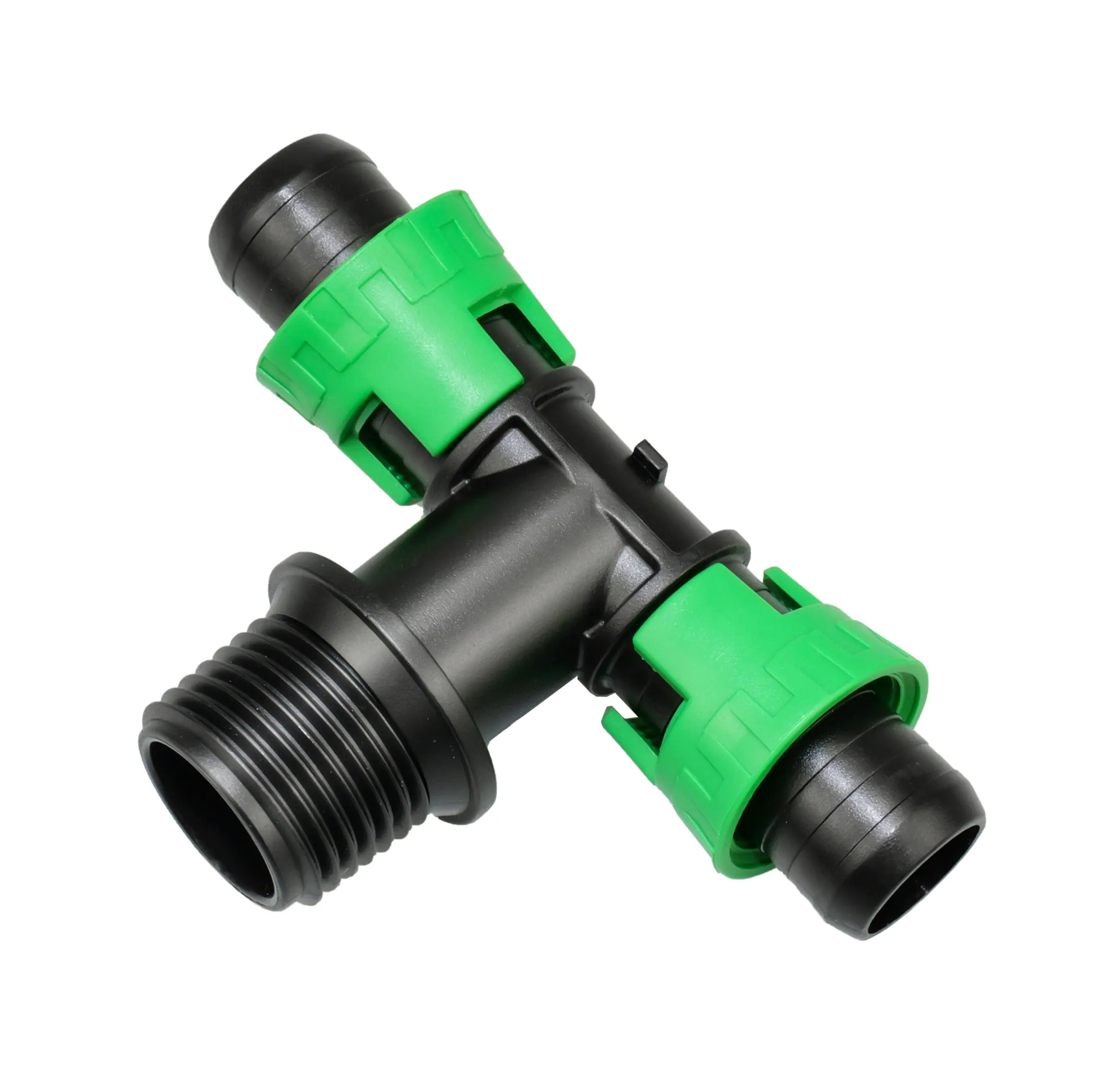What Materials Are Best for Drip Irrigation Connector Durability
Understanding Material Selection for Irrigation System Components
When developing an efficient and long-lasting irrigation system, the choice of materials for connectors plays a crucial role in determining overall performance and longevity. A drip irrigation connector serves as a vital link in the irrigation network, joining pipes and ensuring consistent water flow throughout the system. The durability of these components directly impacts maintenance requirements, system reliability, and long-term cost-effectiveness.
The agricultural and landscaping industries have witnessed significant advancements in connector materials over the past decades. Modern manufacturing processes have introduced innovative compounds that offer superior resistance to environmental factors while maintaining structural integrity under varying pressure conditions. Understanding these materials and their properties is essential for making informed decisions about irrigation system components.
Premium Plastic Materials for Irrigation Connections
High-Performance Polyethylene Compounds
High-density polyethylene (HDPE) has emerged as a leading material choice for drip irrigation connector manufacturing. This versatile material offers exceptional resistance to UV radiation, chemical exposure, and temperature fluctuations. HDPE connectors maintain their structural integrity even after years of exposure to harsh outdoor conditions, making them ideal for both agricultural and residential irrigation systems.
Linear low-density polyethylene (LLDPE) provides another excellent option, particularly for applications requiring flexibility and impact resistance. LLDPE drip irrigation connectors offer superior stress crack resistance and can withstand the physical demands of installation and ongoing system operation. The material's molecular structure allows for optimal performance under varying pressure conditions while maintaining dimensional stability.
Advanced Polypropylene Solutions
Polypropylene (PP) represents another high-quality plastic option for irrigation connectors. This material exhibits excellent chemical resistance and can withstand exposure to various agricultural chemicals and fertilizers. PP connectors offer good temperature stability and maintain their mechanical properties across a wide range of operating conditions.
Modified polypropylene compounds, enhanced with specific additives, provide even greater durability and UV resistance. These specialized formulations ensure that drip irrigation connector performance remains consistent throughout extended periods of outdoor exposure, making them particularly suitable for large-scale agricultural applications.

Metal-Based Connector Solutions
Stainless Steel Applications
Stainless steel drip irrigation connectors represent the premium tier in terms of durability and longevity. Grade 316 stainless steel, in particular, offers exceptional resistance to corrosion and chemical degradation. While these connectors command a higher initial investment, their extended service life and reliability often justify the cost for professional irrigation systems.
The superior strength of stainless steel connectors makes them especially suitable for high-pressure applications and systems requiring frequent maintenance or modifications. Their resistance to physical damage and ability to maintain precise dimensions ensures consistent performance in demanding agricultural environments.
Brass and Bronze Options
Brass connectors provide another metal-based solution, offering excellent durability and corrosion resistance at a more moderate price point than stainless steel. These drip irrigation connector variants are particularly well-suited for applications where water quality may be a concern, as brass naturally resists mineral buildup and scaling.
Bronze alternatives, while less common, offer similar advantages to brass with enhanced resistance to certain types of corrosion. Both materials provide excellent threading capabilities, ensuring secure connections and minimal maintenance requirements over time.
Composite and Hybrid Materials
Reinforced Polymer Composites
Modern composite materials combine the benefits of different material types to create drip irrigation connector solutions with enhanced performance characteristics. Glass-fiber reinforced polymers, for example, offer exceptional strength while maintaining the light weight and corrosion resistance of plastic materials.
These advanced composites often incorporate specialized additives that improve UV stability, impact resistance, and overall durability. The resulting connectors provide excellent long-term performance while remaining cost-effective for large-scale irrigation installations.
Metal-Plastic Hybrid Designs
Hybrid connectors featuring metal reinforcement within plastic bodies represent an innovative approach to irrigation system components. These designs typically utilize stainless steel or brass inserts at critical stress points while maintaining the cost and weight advantages of plastic construction.
The combination of materials allows for optimized performance in specific applications, such as high-pressure zones or areas requiring frequent connection adjustments. These hybrid drip irrigation connector solutions often provide the ideal balance of durability, cost, and functionality.
Environmental Considerations and Material Selection
Sustainability Factors
The environmental impact of irrigation system components has become increasingly important in material selection decisions. Modern manufacturers are developing recyclable and eco-friendly materials that maintain the necessary durability requirements while reducing environmental footprint.
Bio-based polymers and recycled content materials are emerging as viable options for drip irrigation connector production, offering comparable performance characteristics to traditional materials while supporting sustainable agricultural practices.
Climate-Specific Considerations
Different climatic conditions demand specific material properties for optimal performance. In regions with extreme temperature variations, materials must maintain stability and structural integrity across a wide temperature range. UV resistance becomes particularly crucial in areas with high sun exposure, while chemical resistance may take precedence in regions using aggressive water treatment methods.
Understanding these environmental factors helps in selecting the most appropriate drip irrigation connector materials for specific applications, ensuring optimal system performance and longevity.
Frequently Asked Questions
How long do different connector materials typically last?
The lifespan of drip irrigation connectors varies significantly based on material choice and environmental conditions. High-quality plastic connectors typically last 5-10 years, while stainless steel variants can exceed 15-20 years under proper maintenance. Composite materials generally offer intermediate durability, with service lives ranging from 8-15 years.
What material offers the best value for large-scale agricultural applications?
High-density polyethylene (HDPE) typically offers the best balance of durability, cost-effectiveness, and performance for large-scale agricultural installations. While metal connectors may last longer, the initial cost difference often makes HDPE the most economical choice when considering total system implementation.
Are there specific materials recommended for high-pressure systems?
For high-pressure applications, stainless steel and reinforced composite connectors are typically recommended. These materials offer superior strength and pressure resistance compared to standard plastic options. Metal-plastic hybrid designs can also provide excellent performance in high-pressure situations while maintaining cost-effectiveness.

